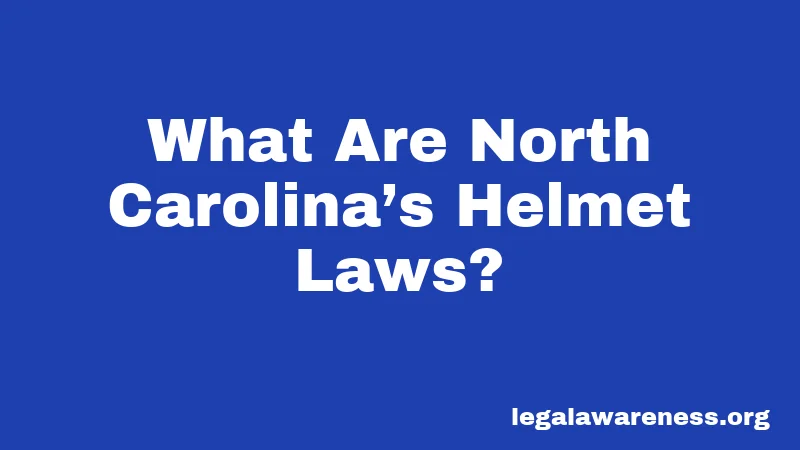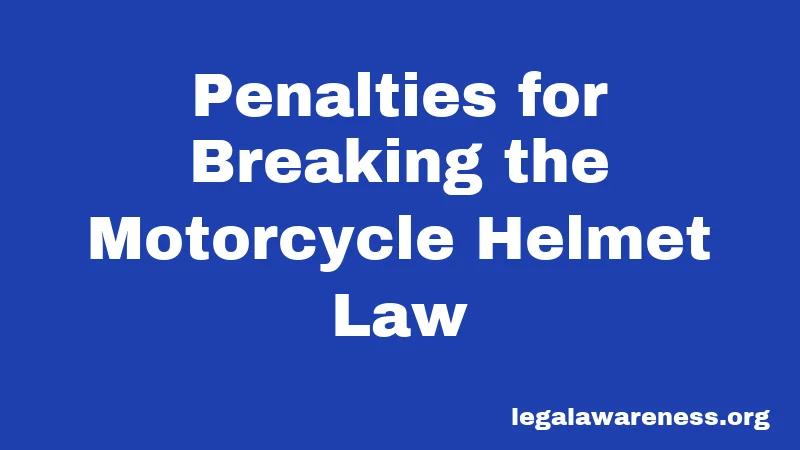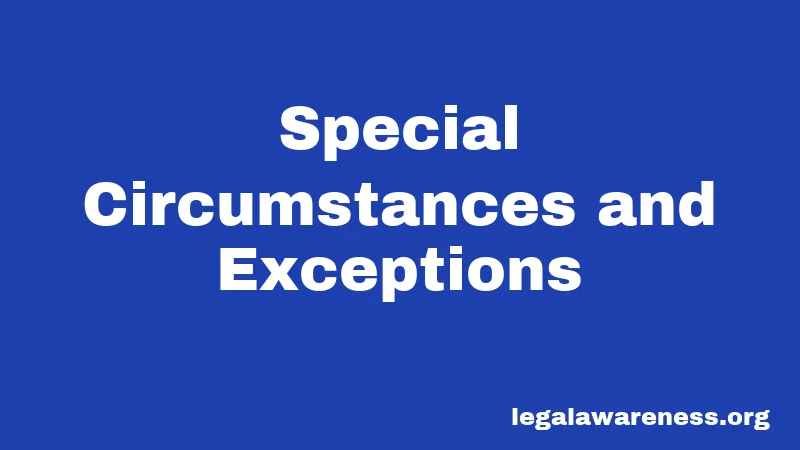North Carolina Helmet Laws (2026): Your Complete Guide
Most people don’t realize how strict North Carolina’s helmet laws are. Seriously. Whether you ride a motorcycle, moped, or bicycle, the state has some tough rules in place. And the penalties? Yeah, they can bite you. But here’s the good news—once you understand what’s required, staying legal is pretty straightforward.
Let’s break down everything you need to know about helmet laws in North Carolina.
What Are North Carolina’s Helmet Laws?

North Carolina takes rider safety seriously. The state requires helmet use for certain riders and passengers. These laws cover motorcycles, mopeds, and bicycles. Basically, if you’re on two wheels in this state, helmets matter—a lot.
Think of it like traffic laws. Just like you need to stop at red lights, you need to wear a helmet in NC. These aren’t new rules either. The motorcycle helmet law has been in place since 2008. That’s over 15 years of keeping riders protected.
Motorcycle and Moped Helmet Laws
Okay, here’s where it gets important. Under North Carolina General Statute 20-140.4, all motorcycle and moped riders must wear helmets. Period. No exceptions based on age, experience, or how short your ride is.
You’re probably wondering: “Does this apply to me?” If you operate or ride on a motorcycle or moped in North Carolina, yes. It applies to you. Same goes for passengers. Everyone on the bike needs a helmet.
Who Must Wear a Helmet
Operators (Drivers): Every person who operates a motorcycle or moped must wear a helmet. That includes you on your commute to work or a weekend joy ride.
Passengers: All passengers on a motorcycle or moped must wear helmets too. The operator is responsible for making sure everyone follows this rule.
Age: There are no age exceptions in North Carolina. Even riders over 21 must wear helmets. This puts North Carolina in a small group—only 20 states have such strict helmet requirements.
Wondering if this is different from nearby states? You’re not alone. South Carolina has no helmet requirement for riders over 21. But North Carolina? Every rider, every time. Recent attempts to weaken the law have failed, and it looks like NC is sticking with this policy.
What Makes a Helmet Legal
Not all helmets work. Your helmet must meet Federal Motor Vehicle Safety Standard (FMVSS) 218. Don’t worry—if it’s compliant, there will be clear signs.
Thick Inner Liner: The helmet needs a firm, thick inner liner made of polystyrene foam. This should be about 1 inch thick. This liner absorbs crash impact. Without it, your head absorbs all that force. Spoiler: that’s bad.
DOT Sticker: Look for the “DOT” symbol on the back of the helmet. The manufacturer must permanently attach this sticker. Helmets with removable stickers don’t count. Neither do novelty helmets that let you add a sticker later. It won’t work.
Manufacturer’s Label: Inside the helmet, you’ll find a label. It should have the maker’s name, model, size, manufacturing date, and care instructions. This label is glued or sewn in permanently. If it’s missing, the helmet isn’t legal.
Pretty straightforward, right? If your helmet has all three of these features, you’re good to go.
Chin Strap Requirements
Hold on, this part matters too. Your helmet must have a retention strap. The strap needs to be fastened under your chin. A loose helmet doesn’t do much good in a crash. In a collision, an unsecured helmet can slip off. So always buckle that chin strap.
Autocycle Exception
Here’s where there’s actually an exception. If you ride an autocycle with fully enclosed seating or a roll bar or roll cage, you don’t need a helmet. Autocycles are three-wheeled vehicles that look more like cars. They have extra protection built in. That protection replaces the helmet requirement.
But regular motorcycles and mopeds? No exceptions. Wear the helmet.
Penalties for Breaking the Motorcycle Helmet Law

Let’s talk money. If you get caught without a compliant helmet, here’s what happens.
Base Fine: The penalty starts at $25.50. Yep, that’s the base. But wait, there’s more.
Court Costs: You’ll also pay additional court costs. These include:
- A General Court of Justice fee
- A telecommunications fee
- A county or city fee (varies by location)
- A contribution to sheriff pension benefits ($1.50)
Add it all up, and one helmet violation can cost you real money. Not just $25.50. We’re talking $50-100+ depending on where you got the ticket.
No License Points: Good news here. This violation doesn’t add points to your driver’s license. Your insurance company can’t raise your rates specifically for this infraction either.
Civil Infraction, Not Criminal: Breaking the helmet law is treated like a traffic ticket, not a criminal charge. That’s less serious, but it still costs money and time in court.
Important: If you weren’t wearing a helmet and got in an accident, the law says this fact cannot be used against you in a lawsuit. It’s not considered negligence per se or contributory negligence. That’s actually pretty fair.
Bicycle Helmet Laws for Kids
Bicycles have helmet rules too, but they work differently. Here’s what you need to know.
Who Must Wear a Bicycle Helmet
In North Carolina, anyone under 16 riding a bicycle must wear a helmet. This includes:
- Kids operating the bicycle
- Children riding as passengers (like in a rear seat)
If your kid is 16 or older, they’re not required by law to wear one. But honestly? Still a great idea. Helmets prevent 60% of head injury deaths. That statistic is worth remembering.
Parents and Guardians Are Responsible
Parents and guardians of children under 16 are responsible for enforcing the helmet rule. If you knowingly let your child ride without a helmet, you could face a fine up to $10.
Think that’s not much? Maybe. But it adds up. Plus, as a parent, you’re liable. That means you’re the one paying the penalty, not your kid.
What Counts as Proper Helmet Use
The helmet needs to:
- Fit well on the child’s head
- Be fastened securely with the straps
- Be worn at all times while riding on public roads, paths, or rights-of-way
A loose helmet isn’t enough. It needs to be properly fastened.
Tricycles Are Excluded
Tricycles don’t count under the helmet law. So if your little one is riding a tricycle, they don’t need a helmet legally. That said? They should still wear one.
E-Bike Helmet Rules
Electric bicycles (e-bikes) have some special rules. Here’s the deal: Kids under 16 on any e-bike must wear helmets, just like regular bikes. Riders on Class 3 e-bikes (the fastest ones) must be at least 16 and must wear a helmet. So if your teenager is riding a faster e-bike, helmets are mandatory.
Special Circumstances and Exceptions

Let’s cover some situations people actually ask about.
What if I’m just riding in a parking lot? The law applies to public roads, highways, and public bicycle paths. Parking lots aren’t specifically mentioned, but it’s safer to assume the law applies. Why risk it?
Can I wear a different type of helmet? For motorcycles, it must be FMVSS 218 compliant. For bicycles, any helmet is better than none, but make sure it fits right. Helmets aren’t one-size-fits-all.
What if my helmet is damaged? Even if a helmet looks fine after a crash, replace it. Helmets degrade over time. The damage inside may not be visible. Replace yours every five years minimum, or immediately after impact.
Do I need a license to ride a motorcycle? Yes. That’s separate from the helmet law, but important. Riders need a valid motorcycle endorsement.
Why Does North Carolina Have These Laws?
You might be thinking: “Why is North Carolina so strict about this?”
The answer is simple: helmets save lives. The National Highway Traffic Safety Administration reports that helmets reduce the risk of death by 37% and head injuries by 69%. Those aren’t small numbers.
In North Carolina, a cyclist is killed or injured every six hours. Let that sink in. Every six hours. One out of every three cyclists killed in the state is under 16. That’s why the laws target kids—they’re the most vulnerable.
For motorcyclists, the numbers are serious too. Helmets literally prevent people from dying. When you understand that, the strict rules start making sense.
How to Get a Compliant Helmet
Okay, so where do you get a legal helmet? Pretty much anywhere that sells helmets.
Motorcycle Helmets: Check your local motorcycle shops, sporting goods stores, or online retailers. Make sure to verify the DOT sticker before buying. Read the label inside. Don’t just take the salesperson’s word—look it up yourself.
Bicycle Helmets: Bike shops, sporting goods stores, and department stores carry them. For kids, make sure it fits properly. A good bike shop can help you fit it right. They know how to adjust straps and make sure the helmet sits correctly.
Testing Before You Buy: Try it on. A helmet should feel snug but not tight. It should sit level on your head, not tilted back or forward. The chin strap should be snug—you should only be able to fit one finger under it.
Frequently Asked Questions
Can I wear a motorcycle helmet on a bicycle? Technically, yes. A motorcycle helmet is safe on a bike. But they’re heavier and bulkier. A bicycle helmet is lighter and more comfortable for regular bike rides. Either way, something is better than nothing.
What if I’m riding in my own driveway? The law applies to public roads and paths. A private driveway isn’t specifically covered. But wearing a helmet is still smart—accidents happen anywhere.
Are novelty helmets legal in North Carolina? No. Novelty helmets—the ones that look cool but lack proper padding and structure—don’t meet FMVSS 218. They won’t protect you in a crash, and they won’t keep you legal.
Does wearing a helmet affect an insurance claim? Not directly. Insurance companies can’t penalize you for wearing a helmet. Conversely, not wearing one doesn’t necessarily void your claim. But an insurer might argue your injuries were worse because you didn’t wear one.
What happens if I’m injured in a motorcycle accident without a helmet? You can still file a claim. NC law says not wearing a helmet isn’t negligence in an accident claim. But the other party’s lawyer might try to argue your injuries were worse because of it.
Final Thoughts
North Carolina’s helmet laws are straightforward. Wear a helmet on motorcycles and mopeds—no exceptions, no age limits. Make sure kids under 16 wear helmets on bicycles. Get helmets that meet the proper standards. Done.
These aren’t complicated rules, and they exist for one reason: to keep you alive. Head injuries from motorcycle and bicycle crashes can be devastating. Helmets reduce that risk dramatically.
The best part? Once you’ve got a compliant helmet, you’re set. One helmet keeps you legal and safe for years. That’s a good investment.
Now you know the basics. Stay informed, stay safe, and when in doubt, look it up or ask a lawyer. Helmets save lives.
References
Official State Statutes
- North Carolina General Statute 20-140.4 (Motorcycle and Moped Helmet Requirements): https://www.ncleg.gov/EnactedLegislation/Statutes/HTML/BySection/Chapter_20/GS_20-140.4.html
- North Carolina General Statute 20-171.9 (Bicycle Helmet Requirements): https://www.ncleg.gov/EnactedLegislation/Statutes/PDF/BySection/Chapter_20/GS_20-171.9.pdf
Government Resources
- North Carolina Department of Motor Vehicles – Motorcycle Helmet Law: https://www.ncdot.gov/dmv/license-id/driver-licenses/motorcycle/Pages/safety-helmet-law.aspx
- NCDOT Safety Resources: https://www.ncdot.gov/divisions/integrated-mobility/safety
Federal Standards
- Federal Motor Vehicle Safety Standard (FMVSS) 218: https://www.nhtsa.gov/regulations-standards/fmvss-218
Additional Safety Information
- Centers for Disease Control Prevention – Motorcycle Safety: https://www.cdc.gov/transportationsafety/motorcycle-safety/index.html
- Bicycle Helmet Safety Institute: https://www.helmets.org
